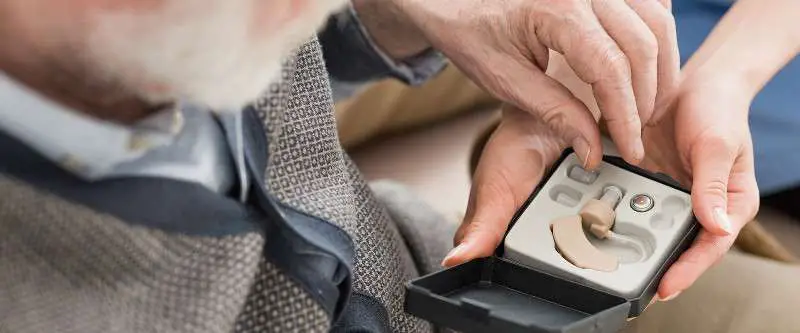Introduction
Hearing loss, specifically of the conductive type, poses an extensive challenge to affected individuals and healthcare providers globally. It impedes the pathway of sound waves, leading to a decreased ability to perceive soft sounds and a muffling of louder ones. As we delve into the realm of conductive hearing loss, it is important to critically evaluate the current research landscape, pinpoint gaps, and forecast future trends.
Conductive hearing loss, while common, is a vast, intricate terrain that necessitates robust scientific investigation. While contemporary research has enabled significant breakthroughs in treatment and management, several aspects of this condition remain elusive. An analytical approach towards the trajectory of research and future potentials can illuminate our understanding of this condition, its causes, and how we can better manage it.
This article undertakes a critical examination of the future of conductive hearing loss research, highlighting promising avenues for investigation, potential improvements in hearing aid technology, advances in genetics, and upcoming clinical trials. It draws upon recent scientific studies to paint a comprehensive picture of the current status and future directions of this pertinent healthcare issue.
Whether you are a researcher seeking insights into future trends, a healthcare professional aiming to update your knowledge, or an individual dealing with conductive hearing loss, this detailed analysis aims to offer a critical and scholarly perspective on the future of conductive hearing loss research and treatment.
RCA OTC Hearing Aid Pair
Experience the world like never before with the RCA OTC Behind-the-Ear Hearing Aid. Our advanced digital technology ensures that every sound is crystal clear and vibrant, allowing you to fully immerse yourself in life’s experiences. Whether it’s the laughter of loved ones or the music that moves you, our hearing aid brings back the joy of every moment.
Say goodbye to the hassle of appointments and prescriptions. The RCA OTC Hearing Aid is designed to meet the needs of individuals without the need for a prescription. With its seamless setup and user-friendly design, you can effortlessly enhance your hearing abilities and stay connected to the world around you. Simply unpack, wear, and enjoy improved auditory perception instantly.
Experience optimal comfort and style with our discreet behind-the-ear design. The thin tube design allows you to wear glasses comfortably, so you can enjoy clear hearing while maintaining your personal sense of style. Plus, our rechargeable battery ensures long-lasting power, eliminating the inconvenience of constantly replacing small batteries. Elevate your hearing experience with the RCA OTC Hearing Aid and embrace the world with confidence.
The Future of Conductive Hearing Loss Research
Looking towards the future, conductive hearing loss research stands at a precipice, with a wide range of potential investigation areas. Yet, the question arises: are we heading in the right direction? Is current research adequately addressing the complexities of conductive hearing loss, and what more can be done?
One of the most promising areas lies in the development of novel, minimally invasive surgical techniques. With advancements in technology, endoscopic procedures and image-guided surgeries are becoming increasingly popular. They offer precise treatments with lower risk and faster recovery times. However, their long-term effectiveness and safety profiles need further investigation.
Another promising area is regenerative medicine. The potential to repair or regenerate damaged tissues in the ear through stem cell therapy is indeed a thrilling prospect. Nevertheless, this field is in its infancy, and more in-depth research is necessary to address its feasibility, efficacy, safety, and ethical considerations.
https://www.hearing-loss.news/authoritative-sources/
Promising Directions for Future Conductive Hearing Loss Studies
Future studies on conductive hearing loss should aim to be holistic, focusing not only on physical impairment but also on its psychological and social implications. The impacts of hearing loss on mental health, quality of life, and social integration are areas that warrant more attention and investigation.
Additionally, research into the development of more effective and sophisticated cochlear implants is essential. While these devices have revolutionized treatment for severe hearing loss, they have their limitations. Future studies should focus on improving the sound quality, reducing background noise, and enhancing speech recognition in various environments.
Moreover, future research must prioritize the development and validation of prognostic tools to identify individuals at risk of developing conductive hearing loss. Understanding the complex interplay of genetic, environmental, and lifestyle factors contributing to this condition could aid in early detection and preventive measures.
Deafness: A Journey of Challenges and Triumphs
Next-Generation Hearing Aids: Future Research Possibilities
The development of next-generation hearing aids represents a significant area for future research in conductive hearing loss. Although current devices are effective in amplifying sound, they have considerable shortcomings, including difficulty in processing speech in noisy environments and the occlusion effect, where the user’s voice sounds louder and unnatural.
Future research should focus on developing smart hearing aids equipped with advanced algorithms that can distinguish between speech and noise, adjust to different listening environments, and provide a more natural sound experience. Moreover, research should also consider user comfort, ease of use, aesthetics, and affordability.
Furthermore, the integration of hearing aids with wireless technology opens up vast opportunities for research. The capability to connect hearing aids with smartphones, televisions, and other digital devices could greatly enhance the user experience. However, the practical application, user acceptance, data privacy, and security of these technologies must be thoroughly researched.
How Advances in Genetics May Shape Future Research on Conductive Hearing Loss
The role of genetics in conductive hearing loss is a complex yet significant domain. Unraveling the genetic basis of conductive hearing loss could lead to better understanding, early diagnosis, and even preventive measures. However, it’s critical to approach this area with due caution, considering the ethical, psychological, and social implications of genetic testing and counseling.
Advancements in genomics and molecular biology have facilitated the identification of several genes associated with conductive hearing loss. Yet, the heritability of this condition is not entirely understood, and the interplay between genetics and environmental factors needs more in-depth investigation.
Additionally, the potential use of gene therapy to treat genetic forms of conductive hearing loss is an exciting possibility. Despite its potential, the ethical, safety, and efficacy aspects of gene therapy warrant careful examination.
Tinnitus: why it’s still such a mystery to science
Upcoming Clinical Trials in Conductive Hearing Loss
Clinical trials are an integral part of advancing knowledge and treatment for conductive hearing loss. While several trials are ongoing or in the pipeline, it is necessary to critically analyze their design, methodology, and outcomes to derive meaningful conclusions.
For instance, trials investigating the safety and efficacy of novel, minimally invasive surgical techniques or next-generation cochlear implants provide valuable insights. However, it is important to ensure that these trials are adequately powered, randomized, and blinded to avoid bias and produce reliable results.
In addition, clinical trials exploring the role of regenerative medicine, such as stem cell therapy, in treating conductive hearing loss are gaining momentum. However, the ethical considerations, potential risks, and long-term outcomes of such trials need to be critically evaluated.
In conclusion, the future of conductive hearing loss research presents a myriad of possibilities and challenges. While there are several promising avenues for investigation, it is crucial to approach them with a critical lens. Rigorous, high-quality research is necessary to improve our understanding and management of this complex condition.
Moreover, the development of next-generation hearing aids and advances in genetics may hold the key to revolutionizing conductive hearing loss treatment. However, these areas also present significant challenges, such as ensuring user acceptance, affordability, and ethical considerations.
Furthermore, upcoming clinical trials in conductive hearing loss offer the potential to evaluate novel treatments and strategies. Nevertheless, the design and methodology of these trials must be thoroughly evaluated to ensure reliability and validity of their outcomes.
Additionally, while delving into the future of conductive hearing loss research, it’s essential not to overlook the human aspect. Research should also focus on understanding the psychological and social implications of hearing loss and developing strategies to improve the quality of life for affected individuals.
Finally, this critical examination of future prospects in conductive hearing loss research underlines the need for continuous questioning, investigation, and learning. As researchers, healthcare providers, and affected individuals, we must all strive to ensure that the future of conductive hearing loss is brighter, clearer, and more sound.

Harmonizing Life with Mixed Hearing Loss: A Global Perspective
Dive into the complexities of Mixed Hearing Loss with our comprehensive guide, exploring diagnosis, treatment options, and practical tips for daily management

Harmonizing Silence and Sound: Mastering Mixed Hearing Loss
Dive into the complexities of Mixed Hearing Loss with our comprehensive guide, exploring diagnosis, treatment options, and practical tips for daily management.
REFERENCES
Hearing Link
A UK-based hearing loss organization offering information and support to individuals and families, including resources on conductive hearing loss.






